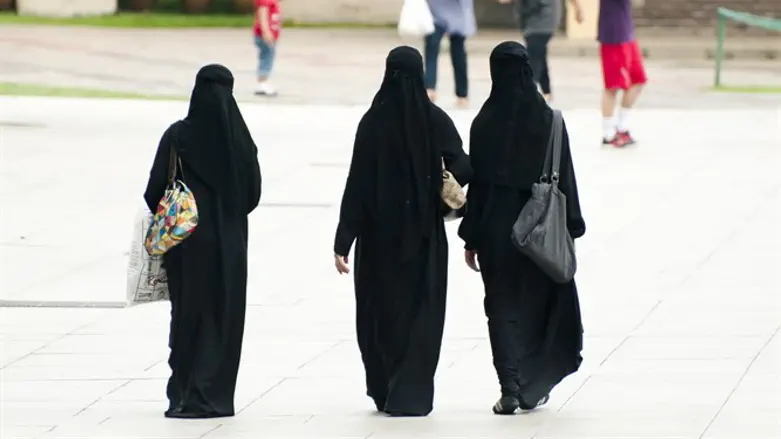
Switzerland’s Muslim and Jewish groups have come together to protest the referendum that took place this week and in which a ban on face-covering veils was approved, JTA reported on Tuesday.
The Swiss Federation of Jewish Communities and the Platform for Liberal Jews in Switzerland said the ban, which passed with 51% of the vote on Sunday, “restricts and violates several conditions of religious freedom.”
In their joint statement, the groups also said they are “concerned that further legislative or federal popular initiatives could further undermine religious freedom in the future.”
The Swiss “have a long history of trying to curb migrations through banning religious practice,” Rabbi Pinchas Goldschmidt, the president of the Conference of European Rabbis and a Zurich native, wrote in a separate statement.
In 1892, the Swiss ban on kosher slaughter, which remains in place today, was “designed to stop the Jewish migration from Russia” from pogroms, he added.
“We fear that this attacks against religious freedom further weakens the ability to practice one’s faith, a basic freedom and human right which is fundamental to a liberal democracy,” Rabbi Goldschmidt wrote.
Even though the proposal "Yes to a ban on full facial coverings" did not mention the burqa or the niqab, which leaves only the eyes uncovered, there was no doubt as to what the debate was about and the vote was criticized as being anti-Muslim.
The ban would mean that nobody could cover their face completely in public, whether in shops or the open countryside. There would be exceptions, including for places of worship, or for health and safety reasons.
The Swiss ban follows similar moves by several other European countries in recent years.
France was the first European country to impose such a ban, having introduced a ban on women wearing the burqa in 2010.
A parliamentary committee in Belgium later voted to ban the burqa as well. Italy has drafted a similar law.
In 2018, Denmark approved a ban on garments that cover the face, including Islamic veils such as the niqab or burqa.
In 2019, Austria introduced a law which banned the headscarf in primary schools. However, Austria's constitutional court struck down the law this past December.